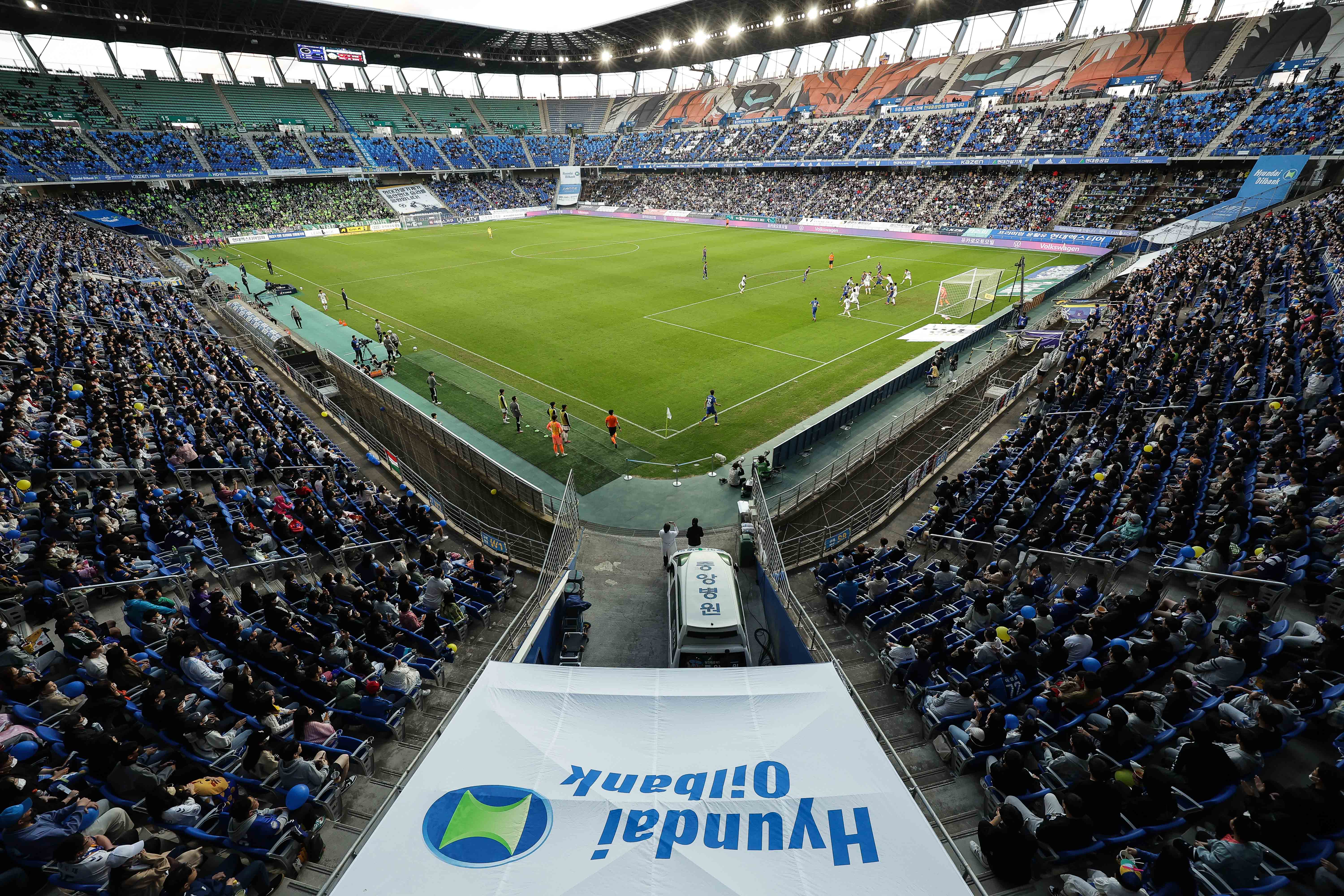K League Team Reverses Food Ban for Opening Weekend
With K League 1 returning this weekend, one notable move by a few clubs to curb food and drink brought in from outside grounds caught attention for going against a long held policy of allowing fans the freedom of their own concessions. With the rule now rescinded after supporter backlash, guest columnist Lex Nande looks at the policy.
Following three years of bans and restrictions, anticipated K League action has another ban in place that is taking over news cycles. The new gate policy on food at some stadiums has led to headlines only days before the 2023 K League season opener.
Last week, Ulsan Hyundai, reigning league champions, announced that a revamped food section in their stadium came with a ban on all outside food and drinks. Traditionally, fans were allowed to bring in food items with limitations on alcohol, glass, sealed cans, and plastic bottles. Ulsan has since revised the statement following protests from fans.
Social media backlash went as far as to say that stadiums couldn’t offer food for those with specific allergies, according to an MBC news clip. In reality, regardless of upgrades to the concessions in the stadium, the question that should be asked is, “Are the stadiums equipped with facilities and the mentality to serve over ten thousand fans prior to kickoff?”
Ulsan Hyundai will host 2022 FA Cup winners Jeonbuk Hyundai on Saturday, February 25th, in what has been dubbed the Hyundai Derby. The final match between the two teams drew over twenty thousand fans, with expectations of the season opener to be nearly the same.
Stating the obvious, Korea’s most popular sport, baseball, does not have the same gameplay as seen in the K League. Baseball allows for multiple trips to the concessions and bathroom during the gameplay. In a market where impressions matter, can the K League afford to have half their attendees waiting in line for food during gameplay?
When business decisions matter, take a look at the recent decision to allow food to be brought into Rugby World Cup games in Japan following complaints. Similar disruptions to game day experience could lead to disgruntled fans in a league that is treading water against local league competition and international game streaming. Poor game day experiences, or even the expectations of it, have already shown a decline in interest in other regional sporting events.
Earlier this week, via Instagram, Ulsan Hyundai released a statement that seemingly reversed the food ban. Instead, they asked for an understanding of the move and wanted fans to reconsider their consumption choices.
Is Ulsan Wrong?
Simply put, no. At the same time, one can not expect concession problems to solve themselves overnight magically. One of the largest complaints from the F1 series in South Korea was concessions, though the event catered mostly to an international crowd.
In a straight comparison, FC Seoul's Sangam World Cup Stadium does not operate with enough facilities inside the stadium to handle the number of visitors that enter in such a short time. Obviously, their crowds depend on the away team, hosting nearly twice as many fans when Jeonbuk Hyundai or Suwon Samsung Bluewings come to town. The kicker is that Sangam sits on top of a Homeplus supermarket that prepares for game day with thousands of boxes of chicken, pork, and other prepared fried foods for the expected crowd.
Ulsan’s Munsu stadium has zero additional facilities, meaning if they truly want to ban outside food, their crowd preparation will likely come down to what menu items are available for fans.
For a look at how other stadiums can prepare such crowds while running full-time kitchens in the stadium, take a look at a past K League United opinion article on the incoming Anyang Stadium.
*Note: This article was amended on February 24th 2023 to better clarify the decision allowing food to be brought into stadiums in Japan, noting it was the Rugby World Cup.








![[about]](https://blogger.googleusercontent.com/img/b/R29vZ2xl/AVvXsEh0mXcKy7h0fXIgdvWFm5DpFfwXkPr2ggzUt9_AoPo8vS0HOsFMT8KsO21qTLZBKoLyQXSOAckzy4OtJCPOoHtL5cGqAa0zXKzIdiW45D6TCFAisfJUODssBTfrkat95GXhJc8haWSP3nyV/s1600/KLU.png)
No comments:
Post a Comment